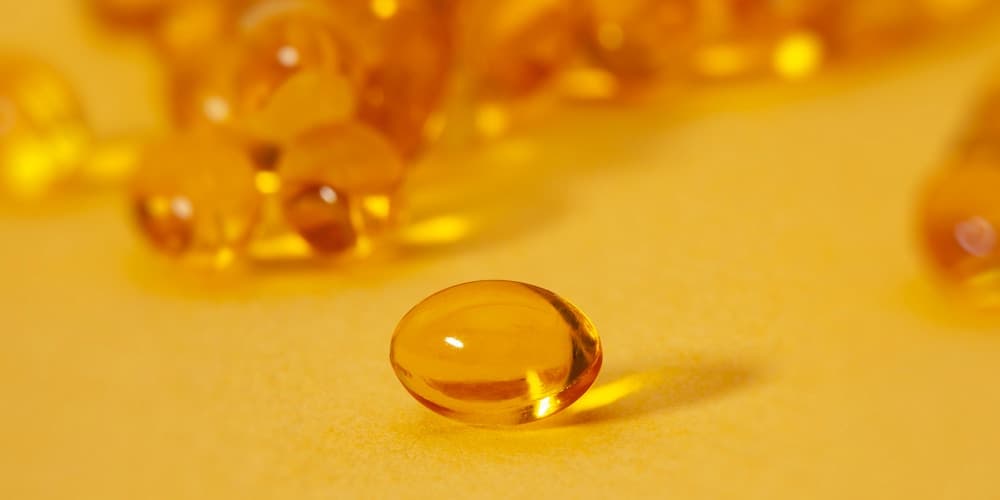Known by its Latin name Borago officinalis L., borage is a plant native to the Middle East. Today, it can be found throughout Europe and North Africa.
Recognizable by its star-shaped blue flower, it is renowned for its richness in polyunsaturated fatty acids, particularly gamma-linolenic acid (GLA).
Besides the presence of healthy fats, it is also a source of vitamins A, D, E, and K.
The oil extracted from borage is said to have anti-inflammatory and anti-aging properties. Whether in cosmetics or dietary supplements, let’s examine the benefits of this oil and what the latest research says on the topic.
1. Borage oil enhances the skin
The effect of borage oil on the skin is undoubtedly its most renowned benefit. Its richness in essential fatty acids is particularly beneficial for mature and wrinkled skin.
Gamma-linolenic acid is involved in forming the skin’s protective layer, the hydro-lipid film. It acts as a barrier against external aggressions and maintains proper hydration.
Moreover, this study on elderly individuals showed the impact on this natural epidermal barrier and the appearance of skin dryness in cases of reduced presence of these fatty acids.
With its supply of nutrients like vitamin E, borage oil also has regenerative and antioxidant properties which help combat free radicals and premature skin aging, as indicated by this review.
📚 Read also | A pharmacist selected the 4 best dietary supplements for the skin
2. It might improve hair growth
The presence of omega-6 in the composition of borage oil might:
- combat hair loss,
- improve scalp quality for healthier growth,
- increase blood microcirculation, which would promote growth.
According to a study, these benefits originate from gamma-linolenic acid’s ability to block an enzyme, 5-α-reductase, which converts testosterone into dihydrotestosterone (DHT), responsible for accelerating hair loss.
📚 Read also | How to choose your dietary supplement against hair loss?
3. It has an impact on cardiovascular health
Certain studies show the benefits of gamma-linolenic acid in preventing cardiovascular disorders by reducing LDL cholesterol, which causes heart diseases.
However, based on my research, there are few available scientific sources on humans. I believe these benefits should be taken with a grain of salt.
I would like to point out this 2021 study conducted on obese individuals. It showed that borage oil enabled the reduction of blood triglycerides, a risk factor in the development of cardiovascular diseases, as well as an increase in HDL, commonly known as ‘good cholesterol’.
On the other hand, taking borage oil supplements had no effect on LDL cholesterol, total plasma cholesterol, glucose, or body mass index.
Another study conducted on postmenopausal women with high blood pressure showed positive effects from borage oil supplementation on their blood pressure in the short term. Further research is needed to confirm these benefits.

4. It is beneficial for atopic skin
The effects of borage oil on the skin don’t stop there. The presence of gamma-linolenic acid gives the plant anti-inflammatory effects, and stimulates the synthesis of prostaglandin E1, also known as PGE1, an inflammatory hormone.
At the same time, it inhibits the synthesis of prostaglandin E2, a pro-inflammatory hormone.
These inflammation-reducing capabilities could soothe irritations of atopic skin. Borage oil is often noted for its benefits for skin suffering from eczema or psoriasis.
However, scientific studies on the subject are scarce and do not conclude the usefulness of the oil for the treatment of these conditions.
Among them, a review and meta-analysis from 2018 including 11 studies and 596 participants under 14 years affected by eczema found no convincing evidence of the use of borage oil for alleviating symptoms.
5. It is said to be beneficial for women’s health
Borage oil is also renowned for its benefits for women, particularly for painful periods, premenstrual syndrome, and menopausal symptoms.
Why? Its modulating effects on prostaglandins, which in turn influence the production of estrogen and progesterone, the culprits of discomfort related to the female cycle!
📚 Also read | How to naturally relieve PMS or period pain?
Sources and scientific studies
T Brosche, D Platt, 2000. Effect of borage oil consumption on fatty acid metabolism, transepidermal water loss, and skin parameters in elderly people.
Hitoshi Masaki, 2010. Role of antioxidants in the skin: anti-aging effects.
Federica Zanzottera, Gioia Bizzaro, Angela Michelotti, Vincenzo Nobile, 2017. Efficacy of a Nutritional Supplement, Standardized in Fatty Acids and Phytosterols, on Hair Loss and Hair Health in both Women and Men.
Rakesh Kapoor, Yung-Sheng Huang, 2006. Gamma Linolenic Acid: An Antiinflammatory Omega-6 Fatty Acid.
Robert A DiSilvestro, Susan Olivo Marston, Autumn Zimmerman, Elizabeth Joseph, Carolynn Boeh McCarty, 2021. Borage oil intake by overweight young adults: no effect on metabolic rate; beneficial effects on plasma triglyceride and HDL cholesterol readings.
Da Costa Hime, Lúcia de Fátima Cahino, Carvalho Lopes, Ceci Mendes, Roa Cristiane Lima, Zuchelo Lea Tami Suzuki, Baracat Edmund C, de Andrade Januário Soares, José Maria Jr, 2021. Is there a beneficial effect of gamma-linolenic acid supplementation on body fat in postmenopausal hypertensive women? A prospective randomized double-blind placebo-controlled trial.
Fiona J Bath-Hextall, Claire Jenkinson, Rosemary Humphreys, Hywel C Williams, 2012. Dietary supplements for established atopic eczema.



